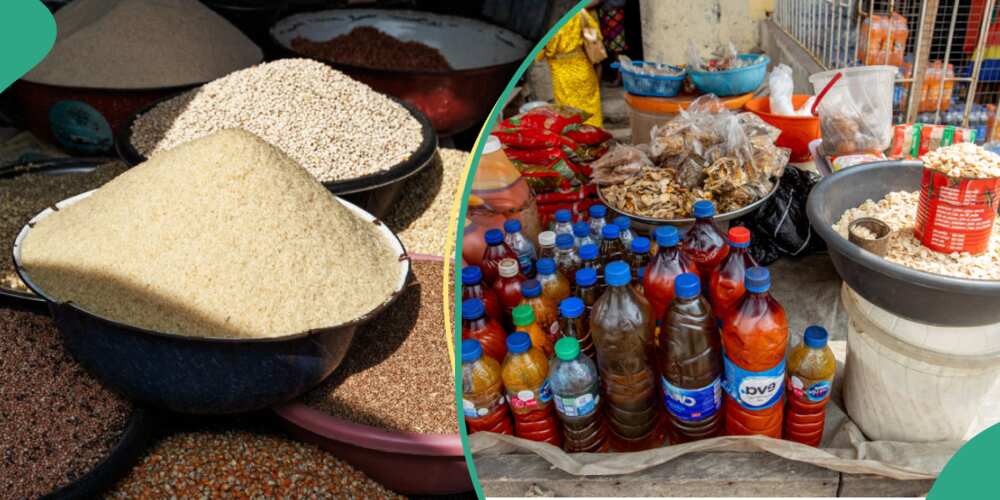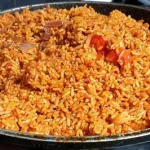In response to the escalating food inflation crisis, the Federal Government has approved an intervention plan to stabilise and advance the country’s food security.
Minister of Agriculture and Food Security, Abubakar Kyari, announced the approval of N2 trillion to combat food inflation and implement the Presidential Accelerated Stabilisation and Advancement Plan.
Join our WhatsApp ChannelGovernment’s Commitment to Tackling Food Inflation
During a briefing in Abuja on Monday, 8th July 2024, Minister Kyari emphasised the government’s commitment to addressing food inflation.
“Over the past several months, we have all been witnesses to the escalating cost of food items in all parts of the country. There is virtually no food item that has not had its price raised to a level higher than what a good many Nigerians can afford,” Kyari stated.
The minister detailed the government’s effort, which includes a 150-day Duty-Free Import Window for Food Commodities.
This programme allows for the importation of certain food commodities, including maize, husked brown rice, wheat, and cowpeas, without duties, tariffs, and taxes through land and sea borders. These imported commodities will be sold at a Recommended Retail Price (RRP) to ensure affordability.
Ensuring Quality and Safety of Imported Food
Addressing concerns about the quality and genetic composition of the imported food commodities, Kyari reassured the public of the government’s high standards.
“The government’s position exemplifies standards that would not compromise the safety of the various food items for consumption,” he said.
READ ALSO: Food Inflation In Nigeria Hits 40.66%, Deepening Economic Woes
The federal government will import 250,000MT of wheat and 250,000MT of maize, targeting supplies to small-scale processors and millers across the country.
Setting Prices and Increasing Production
To further stabilise prices, the government will engage relevant stakeholders to set a Guaranteed Minimum Price (GMP) and mop up surplus food commodities to restock the National Strategic Food Reserve.
Minister Kyari noted that support for smallholder farmers would continue during the 2024/2025 farming cycle, ensuring sustained production.
Youth and Women Engagement in Agriculture
The government is also developing strategic engagement for youth and women across the federation to promote greenhouse cultivation of horticultural crops like tomatoes and peppers.
This initiative aims to increase production volume, stabilise prices, and address food shortages.
Kyari highlighted ongoing engagements with the Nigerian Military to cultivate arable lands under the Defence Farms Scheme and encouraged other para-military establishments to utilise available arable lands for cultivation.
Livestock Development and Nutrition Security
The minister announced the inauguration of the Renewed Hope National Livestock Transformation Implementation Committee on July 9, 2024.
This committee will develop and implement policies prioritising livestock development, aligning with the National Livestock Transformation Plan.
Additionally, efforts will be made to enhance nutrition security by promoting the production of fortified food commodities and scaling up the Home Garden Initiative.
Finalizing Implementation Frameworks
In collaboration with the Presidential Food Systems Coordinating Unit (PFSCU) and the Economic Management Team (EMT), the government will finalize implementation frameworks over the next 14 days.
“We will ensure that information is publicly available to facilitate the participation of all relevant stakeholders across the country,” Kyari assured.
President’s Commitment to Food Security
Reiterating President Bola Ahmed Tinubu’s commitment to food security, Kyari said, “As our nation confronts a critical food security challenge, let me reiterate Mr. President’s unwavering commitment to attaining food security and ensuring that no Nigerian goes to bed hungry.”
The minister emphasised the government’s determination to swiftly implement policies to ensure immediate food security while developing long-term strategies for sustainable food systems.
Current Food Inflation Rates
Highlighting the severity of the food inflation crisis, Kyari cited data from the National Bureau of Statistics, which recorded food inflation at 40.66%.
“We have heard the cries of Nigerians over the prices of food items and condiments. What in the past was regarded as common items such as yam, plantain, and potato now command excessively high figures,” he remarked.
Government’s Immediate Response to food inflation
The government has taken several immediate actions, including releasing 42,000MT of assorted food commodities from the National Strategic Food Reserve and purchasing 88,500MT of milled rice from the Rice Processors Association of Nigeria.
Despite these efforts, prices continue to rise, and food items are becoming scarce.
“The Government cannot allow this situation to persist,” Kyari asserted. “While there are ongoing agricultural initiatives, we must respond to the creeping availability crisis.”
In conclusion, the federal government’s comprehensive plan aims to tackle food inflation, stabilise prices, and ensure food security for all Nigerians.
As these measures take effect, the government remains committed to addressing both immediate and long-term challenges in the country’s food system.
Emmanuel Ochayi is a journalist. He is a graduate of the University of Lagos, School of first choice and the nations pride. Emmanuel is keen on exploring writing angles in different areas, including Business, climate change, politics, Education, and others.




















Follow Us